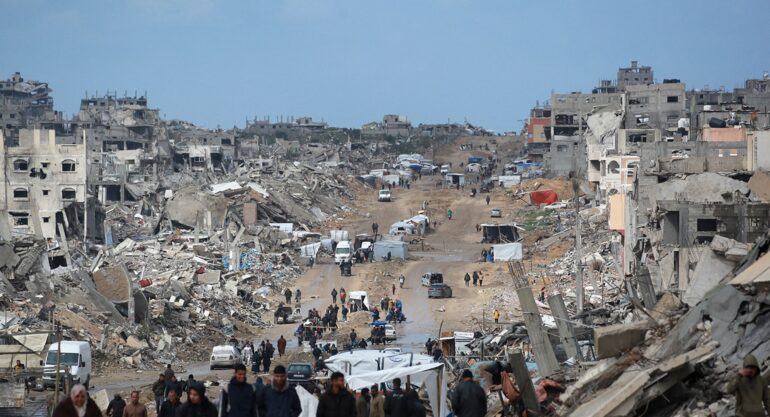On June 20, 2025, the world watches as tensions in the Middle East teeter between war and diplomacy. A week-long conflict between Israel and Iran, marked by airstrikes and missile barrages, has raised fears of a broader regional escalation. Amid this chaos, a glimmer of hope emerges as Iranian Foreign Minister Abbas Araghchi prepares to meet European leaders in Geneva on Friday to discuss Iran’s nuclear program. The White House, led by President Donald Trump, sees a “substantial chance” for renewed negotiations, but the path to peace remains fraught with challenges.
A Week of Conflict
The conflict erupted on June 13, 2025, when Israel launched airstrikes targeting Iran’s nuclear and military sites, including the Natanz enrichment facility and centrifuge workshops near Tehran. Israel’s stated goal is to prevent Iran from developing a nuclear weapon, a threat it considers existential. Iran has retaliated with 450 missiles and 1,000 drones, most intercepted by Israel’s advanced air defenses. The violence has been devastating: at least 657 people, including 263 civilians, have been killed in Iran, with over 2,000 wounded, according to a Washington-based Iranian human rights group. In Israel, 24 people have died, and hundreds have been injured, including 80 patients and medical workers wounded in a strike on a hospital in Beersheba.
Iran insists its nuclear program is for peaceful purposes, but its enrichment of uranium to 60%—a short step from weapons-grade 90%—has alarmed the international community. Israel, widely believed to possess nuclear weapons itself (though it has never confirmed this), has intensified its air campaign, targeting Iran’s missile infrastructure and research facilities. On Friday, Israeli jets struck sites near Kermanshah and Tabriz, further weakening Iran’s military capabilities.
A Diplomatic Window
Amid the strikes, diplomatic efforts are gaining traction. Iranian Foreign Minister Abbas Araghchi is set to meet with European leaders, including French Foreign Minister Jean-Noël Barrot, U.K. Foreign Secretary David Lammy, German Foreign Minister Johann Wadephul, and EU foreign policy chief Kaja Kallas, in Geneva. These talks, the first face-to-face discussions since the conflict began, aim to address Iran’s nuclear program and de-escalate the violence. British Foreign Secretary Lammy called the meeting a “window of opportunity” for diplomacy, emphasizing the urgency of preventing a wider war.
The United States, while not directly involved in the Geneva talks, is closely engaged. White House Press Secretary Karoline Leavitt revealed that U.S. and Iranian officials have held six rounds of direct and indirect negotiations since the conflict started. President Trump, who withdrew the U.S. from the 2015 Iran nuclear deal during his first term, has set a two-week deadline to decide whether to involve U.S. military forces, potentially targeting Iran’s fortified Fordo enrichment facility. However, Trump has expressed hope for a diplomatic solution, insisting that any deal must prohibit Iran from enriching uranium—a key component of nuclear weapons.
Challenges to Peace
Despite the diplomatic push, obstacles abound. Iran’s Supreme Leader, Ayatollah Ali Khamenei, has rejected U.S. calls for surrender, warning that American military involvement would cause “irreparable damage.” Araghchi, speaking on Iranian state television, insisted that Iran is focused on “legitimate self-defense” and will not negotiate while Israel’s attacks continue. He also emphasized that Iran’s missile capabilities are non-negotiable, limiting the scope of the Geneva talks to the nuclear program.
European leaders, who played a key role in the 2015 nuclear deal, are urging Iran to cooperate with the International Atomic Energy Agency and limit its uranium enrichment. French President Emmanuel Macron stressed the need for a “comprehensive, diplomatic, and technical” approach, noting that Israel’s airstrikes alone cannot neutralize Iran’s nuclear threat. German Foreign Minister Wadephul echoed this, calling for Iran to show “serious and transparent readiness” to abandon its nuclear ambitions.
The Stakes
The stakes could not be higher. Leavitt warned that Iran is closer than ever to obtaining a nuclear weapon, stating, “All they need is a decision from the supreme leader, and it would take a couple of weeks to complete the production.” Such a development would threaten not only Israel but also the United States and the global community. Israel’s Prime Minister Benjamin Netanyahu, speaking from the rubble of the Beersheba hospital, expressed confidence in Trump’s support, saying he trusts the president to “do what’s best for America.”
As the Geneva talks approach, the world holds its breath. The outcome could determine whether the Middle East descends into a broader conflict or finds a path to de-escalation. For now, the possibility of diplomacy offers a fragile hope, but with airstrikes continuing and mistrust running deep, the road to peace remains uncertain.
